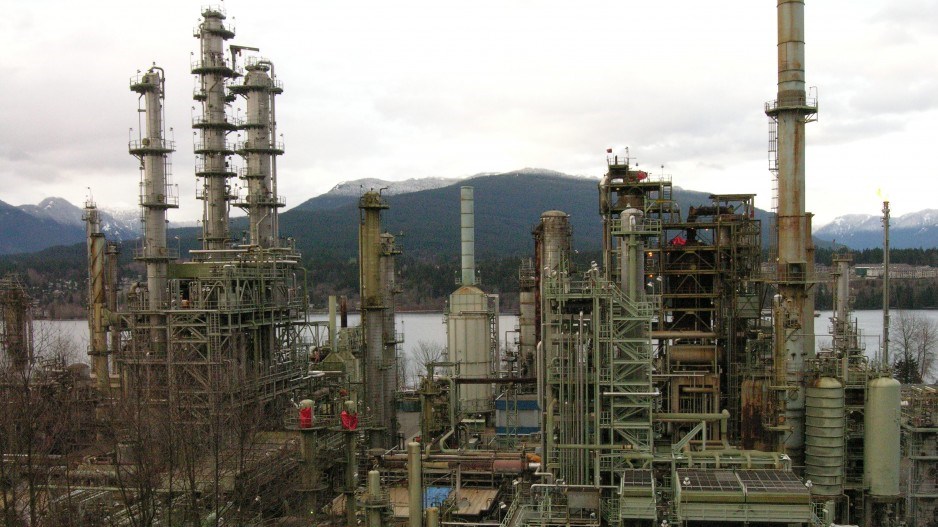The John Horgan government came under pressure last week to do something about B.C.’s high gasoline prices.
While a new refinery in the province might address the supply problem, no one seriously thinks any oil company would invest $10 billion in a new refinery in British Columbia.
So what are the options?
Horgan said his government would study the situation and consider offering “relief” or even contemplate regulating gas prices.
“We’re going to look at regulatory measures,” he said. “We’re going to look at what other measures we can take. But we’re hopeful, as the summer progresses, we see a tailing off of this … profit-taking by the companies.”
Gas prices inevitably drop when the demand for gasoline begins to fall, and refiners switch back to winter fuel mixes. But the problem of high gas prices in B.C. promises to get worse every year.
For one thing, B.C.’s population and economy continue to grow, raising demand in a region that is constrained by limited pipeline and refining capacity.
Moreover, the carbon tax will continue to rise every spring, and the Horgan government’s CleanBC plan requires raising the renewable fuel content of gasoline and diesel to 20% from 7.4% under its low-carbon fuel standard, which will continue to increase the cost of refined fuels in B.C.
A Navius Group report last year suggested the government could consider regulating fuel prices, something that has been done in other parts of Canada and the U.S. But even the report’s author has reservations about taking that step.
“There’s something not quite right here,” said Michael Wolinetz. “And one approach people have taken is regulating prices. I’m not strongly in favour of that, but certainly if the government took action to look at this, that should be something that they should consider.
“The issue is, if you cap the price and you get the cap wrong, you end up with fuel shortages, and nobody wants that.”
“Price fixing in that way, by putting a cap on prices, is a bad, bad idea,” said Werner Antweiler, an associate professor at the University of British Columbia’s Sauder School of Business. “It’s going to backfire in multiple dimensions.”
The biggest problem is that, once prices are capped, if there is a sudden demand for gasoline – due to a refinery going down, for example – it can result in shortages because refiners won’t sell into a market that isn’t willing to pay the market price.
Blair King, who blogs about energy issues, agrees that regulating gas prices is a bad idea.
“If it set the price too low the Washington refineries would simply sell their limited excess supply elsewhere,” he writes. “This would leave us dry.
“The government’s only choice, to ensure supply, would be to set the price at a level where we can compete with California and Oregon for the limited supply out there.”
Regulating prices can also lock in prices that can’t adjust quickly when gasoline prices drop.
“Regulated markets don’t react quickly to price fluctuations,” King writes. “In this case the market would be locked in at a high price and the regulated market would not have the ability to fluctuate downwards to quickly address market drops.
“Thus regulation would guarantee that prices will remain high, and we could not take advantage of short-term supply options to lower gas prices.”
The government could lower or eliminate one of the many taxes on gasoline in B.C. It could also cut rebate cheques, something it is already doing for some lower-income residents.
Because the government doesn’t want to touch the TransLink levy or carbon tax, Dan McTeague, a petroleum analyst for GasBuddy, said the provincial government could temporarily eliminate the BC Transportation Finance Authority’s $0.07 per litre tax.
“You remove that, you’d see gas prices drop seven cents a litre,” McTeague said. “During a time of crisis, when you’re seeing your prices now outflanking the national average by 40 cents a litre, something’s got to give, and one of the things governments could give is a temporary reprieve or relief,” he said.
“If you can get prices back down to the $1.50 range, or perhaps lower, I think that would at least allow B.C. to be competitive,” McTeague said. “God knows how much they’re losing with people driving south of the border.”
But if Horgan really wants to see gas prices drop in B.C., he might just stand down in his fight against the Trans Mountain pipeline expansion, McTeague suggested. The twinning project would add a new line that would allow more crude oil to flow to the West Coast. But it could also add capacity to the existing line: up to 350,000 barrels per day from 300,000, according to McTeague. If all of that additional capacity were used for refined fuel products – gasoline and diesel from Alberta – McTeague estimates, that could reduce gas prices by $0.10 per litre.
But there is no guarantee that will happen. It is up to shippers that have allocated space on the pipeline to decide what to move through the pipeline.
“It’s going to be based on what kind of volume is going be nominated for and by whom,” said Jason Parent, vice-president of the Kent Group.
See related stories: Gas pains on road to green gains in B.C. and B.C.’s carbon tax draws scrutiny from politicians and researchers




